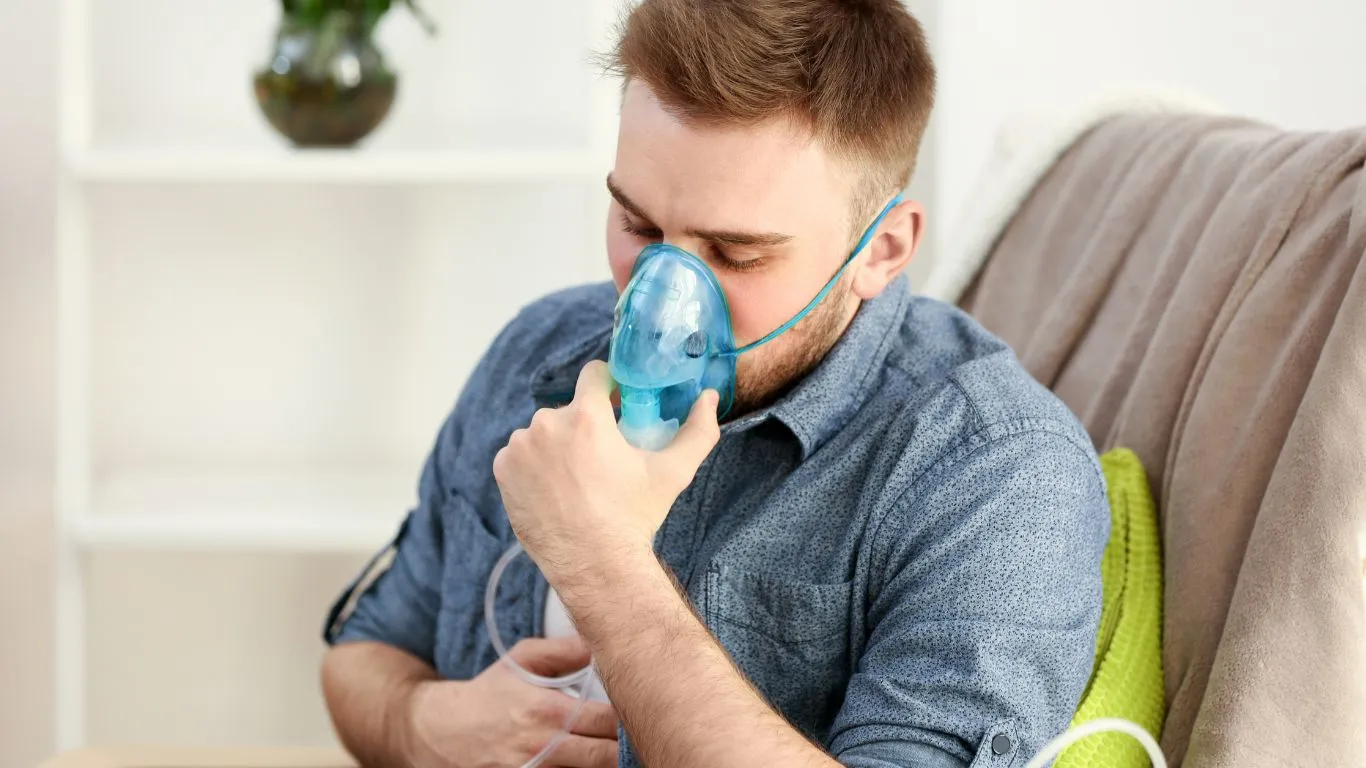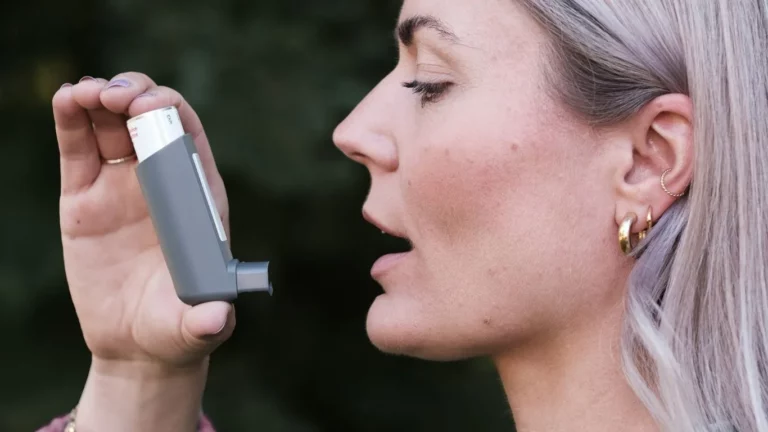Do Allergies Make Asthma Worse Over Time? Critical Warning Signs You Can’t Ignore
Do allergies make asthma worse over time? That’s a question I get from patients all the time in clinic, especially when spring rolls around and pollen counts go through the roof. As a pulmonary nurse practitioner who’s spent over a decade treating asthma patients of all ages, I can confidently say—yes, allergies can and often do make asthma symptoms worse over time. But it’s not always a black-and-white answer. There’s a lot of nuance, and understanding that relationship can help you manage your symptoms better, avoid flare-ups, and breathe easier (literally).
Understanding the Connection Between Allergies and Asthma

Allergies and asthma are like two drama-prone siblings—when one acts up, the other’s usually not far behind. That’s because both are part of what we call atopic conditions, which basically means your immune system overreacts to things that should be harmless, like pollen, pet dander, or even dust mites.
In clinic, I’ve seen patients who only had mild seasonal allergies in their teens, but by the time they hit their 30s, they were dealing with year-round asthma symptoms. Coincidence? Not really. There’s growing evidence that untreated or poorly controlled allergies can actually worsen asthma over time, leading to more frequent exacerbations and even long-term lung changes. That’s why early recognition and management are so crucial.
So, How Do Allergies Actually Affect the Lungs?
When someone with allergic tendencies inhales a trigger—let’s say cat dander—their body starts pumping out chemicals like histamine. This sets off inflammation not just in the nose (hello, stuffy sinuses), but also down in the bronchial tubes. And for people with asthma, that’s where the real trouble starts.
Inflammation causes the airways to narrow, swell, and fill with mucus. That’s the perfect storm for an asthma flare-up. Over time, repeated allergic inflammation can make the airway linings thicker and more reactive. It’s kind of like over-watering a plant: a little is fine, but too much for too long and the roots rot. The lungs don’t rot (thankfully), but they can become more prone to chronic inflammation and persistent symptoms.
Do Allergies Make Asthma Worse Over Time? Absolutely—Here’s Why

From what I’ve seen in practice, and what the research shows, yes—uncontrolled allergies absolutely can make asthma worse over time. Here’s why it happens:
- Chronic Inflammation: Persistent allergic inflammation leads to ongoing asthma symptoms, even when you’re not sick.
- Airway Remodeling: Over time, repeated inflammation can permanently change the structure of your airways, making asthma more severe and harder to treat.
- Lower Lung Function: Studies have shown that people with both allergies and asthma often experience a more rapid decline in lung function as they age.
I can think of one patient in particular—she was in her early 40s, had a history of childhood eczema, seasonal allergies in her teens, and never really took her allergy meds consistently. By the time she came to see me, she was having nighttime wheezing almost every week and using her rescue inhaler like it was candy. Once we got her allergies under control with proper antihistamines and a steroid nasal spray, her asthma symptoms became way more manageable. It’s not magic—it’s just proper care.
Common Allergens That Trigger Asthma Flare-Ups
If you’re wondering what the biggest culprits are, here’s a quick rundown of allergens I often see causing trouble in my asthma patients:
- Pollen: Tree, grass, and weed pollens—especially during spring and fall seasons.
- Dust mites: Microscopic critters that love to hide in bedding, carpets, and upholstery.
- Pet dander: Even if you’re not allergic to your own pet, constant exposure can lead to delayed symptoms over time.
- Mold spores: These thrive in damp environments like basements, bathrooms, or behind wallpaper.
- Cockroach droppings: It’s gross, but it’s real. Especially in urban or older buildings.
If you’re constantly exposed to these and not actively treating your allergies, it’s like running uphill with a backpack full of bricks—your lungs are working harder than they should.
Why Early Intervention Matters More Than You Think

One of the biggest myths I hear is that allergies are “just annoying” and don’t need to be treated seriously. But as someone who’s spent years watching patients go from mild, seasonal wheezing to full-on chronic asthma, I’ll tell you right now—ignoring allergies is like ignoring a small leak in your roof. It might not seem like a big deal at first, but over time, it leads to costly damage.
By identifying triggers early and sticking to a treatment plan, you can slow or even prevent that long-term worsening of asthma. And yes, that means being consistent with your meds, whether it’s daily antihistamines, nasal sprays, or allergy shots if needed.
When Allergies Are Ignored: The Long-Term Cost to Your Lungs

I can’t tell you how many times I’ve had patients come in saying something like, “Oh, I just thought it was a little hay fever,” only to discover that their asthma has slowly crept into the moderate-to-severe range. And the wild thing is—they didn’t even notice it happening.
That’s the sneaky part. When you deal with symptoms like occasional coughing, wheezing, or shortness of breath for long enough, it starts to feel normal. But here’s the deal: those lingering symptoms are often signs of uncontrolled inflammation. And yes, that inflammation is often rooted in allergic triggers—especially when left unaddressed for years.
Over time, this can lead to something called airway remodeling. It’s exactly what it sounds like—your airways change structurally. They become stiffer, narrower, and more prone to permanent damage. Not only does this make asthma harder to control, but it also reduces your baseline lung function. And unfortunately, that’s not something you can easily reverse.
The Subtle Signs Your Allergies Are Worsening Your Asthma
In clinic, I always tell patients to watch for red flags that their allergies are no longer “just allergies.” If you’re wondering whether this could be happening to you, here are some of the signs I look for:
- Needing your rescue inhaler more than twice a week.
- Waking up at night due to coughing or wheezing.
- Feeling winded after light activity—like walking up stairs.
- Increased mucus production or post-nasal drip.
- Frequent sinus infections or nasal congestion.
If you nodded at even one of these, it might be time to re-evaluate how well your allergies and asthma are being managed together. In my experience, most patients who address both find significant relief—not overnight, but steadily and noticeably.
The Role of Allergy Testing and Why It’s a Game-Changer

One of the most underrated tools we have in the pulmonary world is good old-fashioned allergy testing. I’ve seen folks go years without knowing what’s actually triggering their asthma. They’re avoiding cats when it’s really mold. Or they’re blaming spring pollen when their problem is dust mites hiding in their mattress.
Allergy testing—whether through a blood draw or skin pricks—helps pinpoint specific allergens that your immune system is reacting to. That means we can tailor your treatment plan precisely instead of just throwing medication at vague symptoms. I’ve had patients go from monthly ER visits to barely needing their rescue inhaler just by avoiding their true triggers and starting immunotherapy.
What I Usually Recommend (And What I Do Myself)
Let me be honest here—managing allergies and asthma isn’t just about medication. It’s a mix of smart lifestyle changes, good habits, and consistent follow-through. Here’s a rundown of what I often recommend (and practice myself!):
- Daily antihistamines during allergy seasons—even if you “feel fine.” Prevention is key.
- HEPA filters in bedrooms and main living areas to reduce airborne allergens.
- Regularly washing bedding in hot water and using allergen-proof covers.
- Rinsing your sinuses with a saline rinse or neti pot. It makes a huge difference, especially in pollen season.
- Talking to an allergist about immunotherapy (aka allergy shots) if over-the-counter stuff isn’t cutting it.
For me personally, allergy-proofing my bedroom was a game-changer. As someone with mild asthma myself, just swapping out my old pillows and sealing up the mattress reduced my nightly wheezing dramatically. It’s not glamorous, but it works.
Why Ignoring Allergies Can Lead to More ER Visits (and Hospital Bills)

Something people don’t always realize is that allergy-driven asthma is one of the leading causes of ER visits for respiratory distress. And honestly, it’s usually preventable with better long-term care. It’s heartbreaking to see young patients come in gasping for air when a simple antihistamine or nasal spray might’ve prevented the whole episode.
The cost isn’t just physical—it’s financial too. Between ER bills, urgent care visits, missed work days, and prescription costs, asthma can get expensive fast. Managing your allergies proactively might seem like a hassle now, but it’s nothing compared to a hospital stay.
Don’t Wait for a Crisis—Listen to Your Lungs Early
One of the most powerful things you can do for your health is to not wait until things get really bad. I say this all the time: asthma doesn’t usually jump from “fine” to “emergency” overnight. It’s a gradual slope that most folks don’t even realize they’re sliding down.
If you’re starting to feel like your asthma is creeping up in intensity, or your allergies are becoming more of a nuisance than usual, that’s your cue to act. A tweak in your daily routine now could mean fewer symptoms, better sleep, and way less stress later.
Taking Control: What You Can Do Today to Stop Allergies from Making Asthma Worse

If there’s one thing I’ve learned after years of treating asthma patients, it’s this: small, consistent actions matter way more than occasional heroic efforts. You don’t need a complete lifestyle overhaul overnight. But you do need a game plan—and to stick with it. So let’s talk about real, doable steps you can take starting now to stop allergies from making your asthma worse over time.
1. Make Allergy Management a Daily Habit
I can’t stress this enough—consistency is key. You wouldn’t skip your blood pressure meds three days a week and expect great results, right? Same goes for managing allergies that impact asthma.
- Antihistamines: Take them daily during your allergy season (or year-round if you’re sensitive).
- Nasal Steroids: These reduce nasal and sinus inflammation, which is often the “gateway” to worsening asthma.
- Monitor Air Quality: Apps like AirVisual or even your phone’s built-in weather can help you track high pollen or pollution days.
In my house, we keep a sticky note on the bathroom mirror to remind us: “Meds before coffee.” It works. 😉
2. Treat the Environment, Not Just the Symptoms
As much as I love prescribing the right meds, you can’t medicate your way out of a dusty, moldy apartment. Your home should be your safe zone, not a source of inflammation.
- Vacuum frequently—but make sure your vacuum has a HEPA filter.
- Use dehumidifiers in damp spaces like basements or bathrooms to cut down on mold growth.
- Keep pets out of the bedroom, even if you “don’t feel allergic.” Your lungs will thank you.
One patient of mine had a beautiful long-haired cat that slept on her pillow every night. Once she set up a cozy bed for the cat in the living room instead, her nighttime wheezing dropped dramatically. Tough love, but it worked!
Long-Term Solutions: When to Consider Allergy Shots

Here’s the truth: sometimes over-the-counter treatments just aren’t enough. When patients are doing “everything right” but still struggling, I start talking about allergy immunotherapy—aka allergy shots.
Immunotherapy helps your immune system build up tolerance to allergens over time. It’s not a quick fix, but it can reduce symptoms significantly and even help prevent new allergies from developing. For asthma patients, that’s a huge win. Fewer reactions mean fewer flare-ups and fewer ER visits.
It’s a long-term investment in your health, and I always recommend discussing it with an allergist if:
- Your symptoms are year-round and not improving with meds
- You’re unable to avoid your main allergens (like dust mites or pets)
- You want to reduce long-term asthma progression risks
Many of my patients who stuck with immunotherapy for a few years saw life-changing results. It’s not hype—it’s just biology working smarter.
Building a Supportive Care Team
Another essential part of staying ahead of allergy-related asthma is having a solid care team. That includes not just your primary doctor or NP, but also:
- A pulmonologist if your asthma is moderate to severe
- An allergist for tailored allergy testing and long-term treatment options
- Respiratory therapist (in some cases) to guide you through inhaler technique or breathing exercises
One of the most frustrating things I hear is, “I didn’t know there was more I could do.” Education is empowering. Don’t be afraid to ask questions or get a second opinion if something doesn’t feel right. Your health deserves that attention.
Wrapping It All Up: You Have More Control Than You Think
To answer the big question one more time—do allergies make asthma worse over time? Yes, they can. But the bigger truth is this: you’re not powerless. You can absolutely reduce the impact allergies have on your asthma by being proactive, informed, and consistent.
I’ve watched so many patients reclaim their lives from the grip of poorly controlled allergic asthma. It starts with understanding the connection, and then doing the little things—daily meds, cleaner air at home, checking pollen counts, seeing the right specialists. One step at a time.
If this article sparked a few “aha” moments for you, I’m thrilled. Don’t let allergies quietly chip away at your lung health. Advocate for yourself. Ask your provider more questions. And don’t settle for just “getting by” during allergy season. You deserve to breathe freely all year long.
Helpful Resources & References
- National Institutes of Health (NIH)
- Health.com
- Centers for Disease Control and Prevention
- WebMD
- Mayo Clinic
Disclaimer
This article is for informational purposes only and does not substitute professional medical advice, diagnosis, or treatment. Always consult with a licensed healthcare provider for medical guidance tailored to your specific condition.

Bianca Nala is a compassionate Nurse Practitioner with a strong background in primary and respiratory care. As a health writer for Healthusias.com, she combines her clinical expertise with a talent for clear, relatable storytelling to help readers better understand their health. Bianca focuses on topics like asthma, COPD, chronic cough, and overall lung health, aiming to simplify complex medical topics without losing accuracy. Whether she’s treating patients or writing articles, Bianca is driven by a single goal: making quality healthcare knowledge accessible to everyone.





